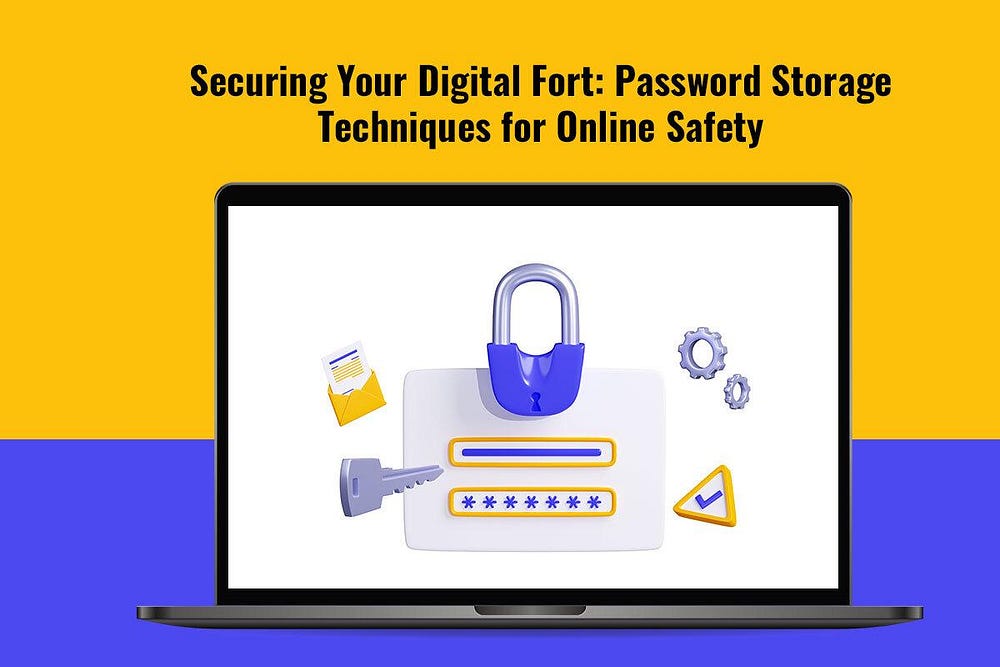
Passwords are the gatekeepers to your digital life. They are secret codes or phrases that grant access to your financial accounts, personal information, and social connections. Hence, storing and managing them safely is critical to ensuring online safety.
First and foremost, never create guessable passwords. They are easily compromised, resulting in financial fraud, identity theft, and data breaches. Weak and guessable passwords include pet names, birth dates, etc. Cybercriminals can easily crack such weak passwords without the use of brute-force attacks.
Second, do not use the same password across multiple online accounts. Yes, it does seem convenient to have the same password for your apps, streaming services, and bank accounts. But this means that if one account is compromised, all the others are compromised as well. This can wreak havoc in your life and make your digital life chaotic. Instead, use different passwords for all your accounts and follow these tips for the safest way to store passwords:
- Your head:
- Storing passwords in your head is truly the safest because nobody can access the stored information except you. But if you struggle to remember passwords, the other options in this list might help.
- Utilize password managers:
- Password managers are your online storage locker. You have to remember the password of your preferred manager to access the rest of the passwords. Managers let you store strong, unique passwords for various sites and accounts. Also, you can utilize the manager to help you create strong passwords for your accounts.
- Keychain:
- If you are using a Mac, you can store passwords in Keychain Access. This is Mac’s password management software enjoying the protection of 256-bit AES encryption.
You can also store passwords in web browsers and emails, but these methods are not impenetrable. To ensure your passwords are not accessed by cyber criminals, you can implement the management strategies discussed in the next section.
Password Storage & Management Strategies
Simply storing passwords and forgetting about them is not the solution to achieving online safety. Here are some password security best practices to be followed:
- Store passwords in browsers, emails, or anywhere, but enable 2FA – Unless you can remember all the passwords in your head, it is impossible to say for sure which password storage method is impenetrable. Cybercriminals are getting smarter and much more sophisticated as technologies evolve. Hence, the best option is to enable 2FA or two-factor authentication for your online accounts. This means you will need a one-time secret code, along with your password, to access your accounts. This way, even if a hacker uncovers your password, they won’t be able to access your account without the verification code.
- Change passwords frequently – It is considered best practice to change your passwords every six to eight months, especially for high-risk accounts like banking and email. You must ensure the new password is strong and unique. By frequently changing passwords, you will keep the hackers guessing. You can use your chosen password manager to generate unique passwords now and then.
- Do not share passwords – You may wonder how your accounts got hacked even after you took all the necessary precautions. The answer might be password sharing. It is best not to share your passwords with your friends, colleagues, or anyone. If you have to share access to any of your accounts, you can use a password manager that lets you share accounts without sharing passwords. Also, you must keep your information about yourself private from social media. If you offer too much insight into your personal life to a stranger, they may take advantage of you.
- Use VPN when using public Wi-Fi – So, you have securely stored your passwords, yet your account got hacked? What did you do wrong? Did you use public Wi-Fi to access your accounts? These unsecured networks are breeding grounds for hackers, who lie waiting for their next victim. If you are not careful, you could be next. Using a VPN when connecting to a public Wi-Fi network is essential. A VPN will offer an additional layer of security, ensuring your passwords and other information are safe and encrypted.
Additionally, beware of phishing scams. You must not click on suspicious-looking links or download email attachments from senders you don’t know. Installing apps from verified sources, such as the App Store or Google Play Store, is also best.
In summary, there are multiple ways to store passwords for your online accounts, but when securing your digital fort, regular vigilance and alertness are your best friends. For instance, you can store your passwords on paper, but if you don’t keep the paper under lock and key, you are risking your online security. Similarly, you can use a password manager or store passwords in web browsers. But ultimately, you must exercise regular vigilance and stay updated on the latest breaches to maintain online security.







